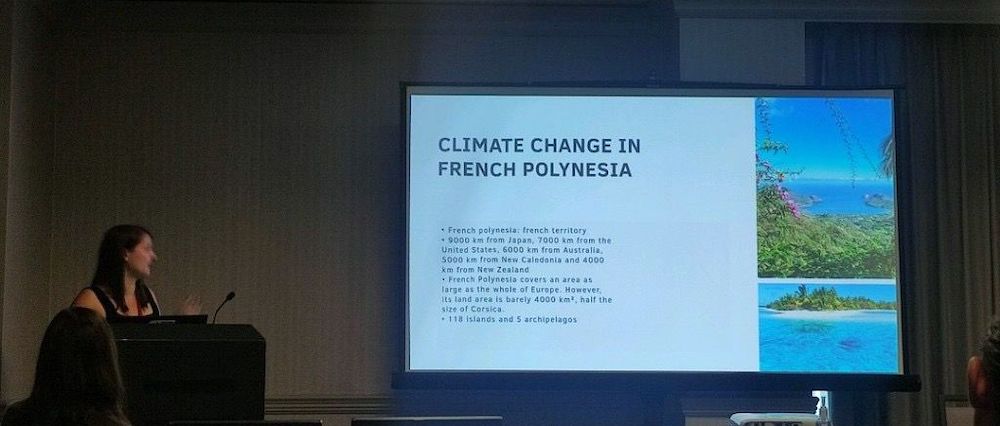A serious game as part of an observatory for climate risk resilience strategies: application in French Polynesia
The 2022 SRA annual meeting will be hold from December 04 to 08 in Tampa, Florida, USA.
Charlotte Heinzlef is going to give an oral presentation about "sustainability and resilience" on Tuesday December 06.
A serious game as part of an observatory for climate risk resilience strategies: application in French Polynesia
According to IPCC results, islands are considered to be the most at risk from climate change. However, human, financial, technical and scientific resources are only poorly developed in these territories. For instance, French Polynesia is not included in national risk management plans or even in the national risk observatory. Faced with this increase in risks and uncertainties, resilience facilitates the development of adapted, systemic, and localized risk management strategies. However, this concept remains for many actors fuzzy and difficult to turn into concrete actions. Therefore the objective is to produce a spatial support system, in the form of a risk and resilience observatory, to support local implementation of resilience. One of the objectives of the observatory is to develop collaborative approaches to ensure the sustainability of the use of the tool. However, actors have a difficult perception of risk and resilience until they themselves have had the difficult experience of disasters.
In the field of crisis management, the observation is unanimous: errors are often linked to a lack of experience, decision-making capacities, human factors, psychological, cognitive or organizational dimensions. In order to develop these soft skills, it has been proven that serious game techniques are necessary, allowing actors to test situations of decision-making. We therefore developed a prototype board game to engage stakeholders, support them in a long-term collaboration, place them in a decision-making situation, and make them perceive all the complexity of a systemic and resilient crisis management. This game prototype is first developed and tested in Tahiti. The objective is to situate the actors in front of the temporality of a crisis: before (development, dynamization of their territory), during (crisis management) and after (restructuration of their territory). Each decision is linked to a certain type of resilience: urban, technical, social, environmental. The objective is to debrief them at the end on their prioritization trend in their management choices. They also have a budget to respect in order to be as close as possible to reality. To accompany this serious game, 2 questionnaires (before and after) are introduced to measure the degree of learning linked to the game.
This gamification process has several objectives: (1)getting local stakeholders around the table to collaborate,(2) developing a playful, inspiring and creative atmosphere,(3) simulating a real crisis with the help of a game, but without the catastrophic consequences of reality, in order to encourage actors to be innovative,(4) understanding and testing the cascading issues,(5)analyzing the concept of resilience and linking it to specific risk management and land use actions,(6)overcoming the lack of experience. This first game allows identifying some limits. We are currently working on the beta version.
The integration of serious gaming in the understanding and adoption of resilience is crucial. In addition to place actors in action, the use of a questionnaire assessing the degree of learning is essential for monitoring real knowledge of local actors. Having a clear vision of this, allows designing and adapting reports, data and results produced by the observatory. This tool will therefore be fully in line with the local needs. Finally, positioning actors in a situation of decision-making and innovation will highlight their capacity to act.
More information: https://www.xcdsystem.com/sra/program/J1eG4xF/index.cfm?pgid=413&sid=8977&abid=27556




